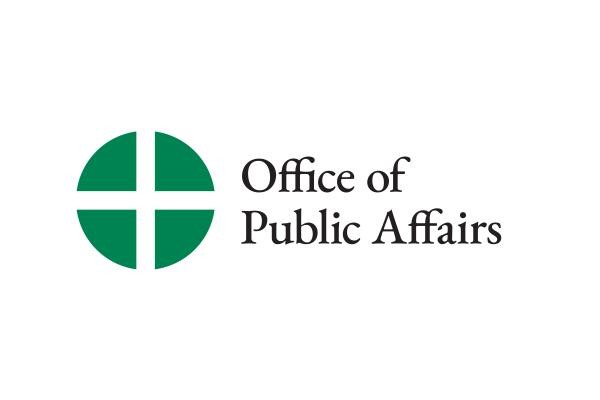West Coast Catholic-Muslim Dialogue Compares Sacred, Pious Writings
WASHNGTON—Catholics and Muslims compared sacred and pious writings atthe 11th meeting of the West Coast Catholic-Muslim Dialogue, in Orange, California, May 19-20. The dialogue is co-sponsored by the Committee for Ecumenical and Interreligious Affairs of the United States Conference of Catholic Bish
WASHNGTON—Catholics and Muslims compared sacred and pious writings atthe 11th meeting of the West Coast Catholic-Muslim Dialogue, in Orange, California, May 19-20. The dialogue is co-sponsored by the Committee for Ecumenical and Interreligious Affairs of the United States Conference of Catholic Bishops (USCCB) and the Islamic Shura Council of California, with the cooperation of the Islamic Society of Orange County (an affiliate of the Islamic Society of North America) and the Islamic Education Center of Orange County, which is in the Shia tradition of Islam.
Participants compared the miraculous story of the “Seven Sleepers of Ephesus,” found in early Christian writings, with its correlative reference in Surah 18 of the Qur’an, known as “The Cave.” The story involves seven young men who fled persecution by the Roman Emperor Decius (circa 250 AD) and hid in a cave. Furious, the Emperor had the cave sealed. However, the Lord placed the young men into a miraculous sleep and when the cave was opened generations after the persecution ended, the sleepers awoke thinking they had slept but a few hours. A chapel and a mosque mark the site to this day.
The meeting opened with remarks by Catholic Co-chair, Bishop Carlos Sevilla of Yakima, Washington, and Muslim Co-Chair Dr. Muzammil Siddiqi of the Islamic Society of Orange County. Both remarked that Islamophobia continues to be a problem in society as is antipathy towards religion in general. This stands as a problem not only for Catholics and Muslims but also for all people of faith in U.S. society, they indicated.
Dr. Siddiqi led the discussion with a paper titled, “Ashab al-Kahf - The Companions of the Cave.” He spoke first to the historical context of the story as it appears in the Qur’an, and explained that it was first told during the Meccan period when the early Muslim community experienced persecution at the hands of the polytheists. The community eventually had to leave Mecca, many to hide in caves. Thus, the passage holds particular significance for Muslims, and especially offers comfort in times of trial. The tale’s main value, Dr. Siddiqi said, lies not so much in the details of the narrative, but rather in its moral lesson that God has unique ways of helping those who are sincere and faithful. It also provides a strong affirmation of the resurrection of the dead. In the ensuing discussion, many Catholic participants commented on how helpful it was that the story dwelt less on detail, and more on the moral truths inherent in it. Participants also noted the elements of belief in the resurrection from the dead, to which both groups could relate. Other emergent themes included the need for divine help and the support of the believing community in the face of persecution.
The second dialogue session began with a presentation by Father Alexei Smith, Ecumenical and Interreligious Officer for the Archdiocese of Los Angeles, who presented a paper entitled “The Seven Sleepers of Ephesus” from an Eastern Christian perspective. He began with a short explanation of how the saints are honored in the Church as witnesses to the faith and are those to whom Christians can turn to for help. He noted that veneration of the saints differs from worship, which is reserved for God alone. Father Smith illustrated how the Seven Sleepers are honored in the Church as martyrs (witnesses) for the faith in the Eastern Churches’ liturgical and devotional life. The Muslim participants saw the Christian story as a manifestation of the power of God, especially in its affirmation of the resurrection. Both groups noted that the two narratives reveal God’s care for the young men who remained faithful.
In addition to the Co-chairs, other Muslim participants included Sherrel Johnson, Council on American-Islamic Relations (CAIR) - California; Imam Taha Hassane, Islamic Center of San Diego; Mr. Hussam Ayloush, CAIR - Greater Los Angeles Area; and Saideh Khan and Jerrel Abdul Salaam, active members of the local Muslim community. Catholic participants included Father Smith; Father Al Baca, Diocese of Orange, California; Father Jose Rubio, Diocese of San Jose; Father Michael Kiernan, Diocese of Sacramento; Msgr. Dennis Mikulanis, Diocese of San Diego; and Father Leo Walsh, USCCB staff.
The next West Coast Dialogue is scheduled for Orange, May 24 -25, 2011. More information is available on the USCCB Website at https://www.usccb.org/seia.
---
Keywords: interreligious dialogue, Catholic, Muslim, sacred writings, pious writings, legend, Islamophobia

